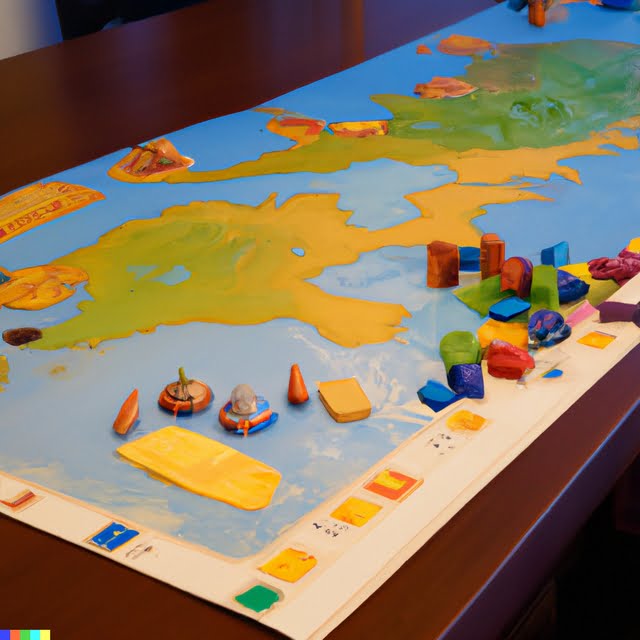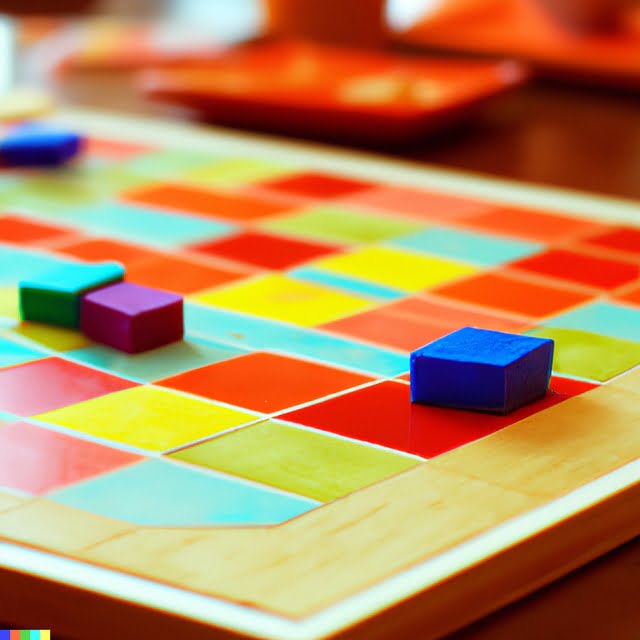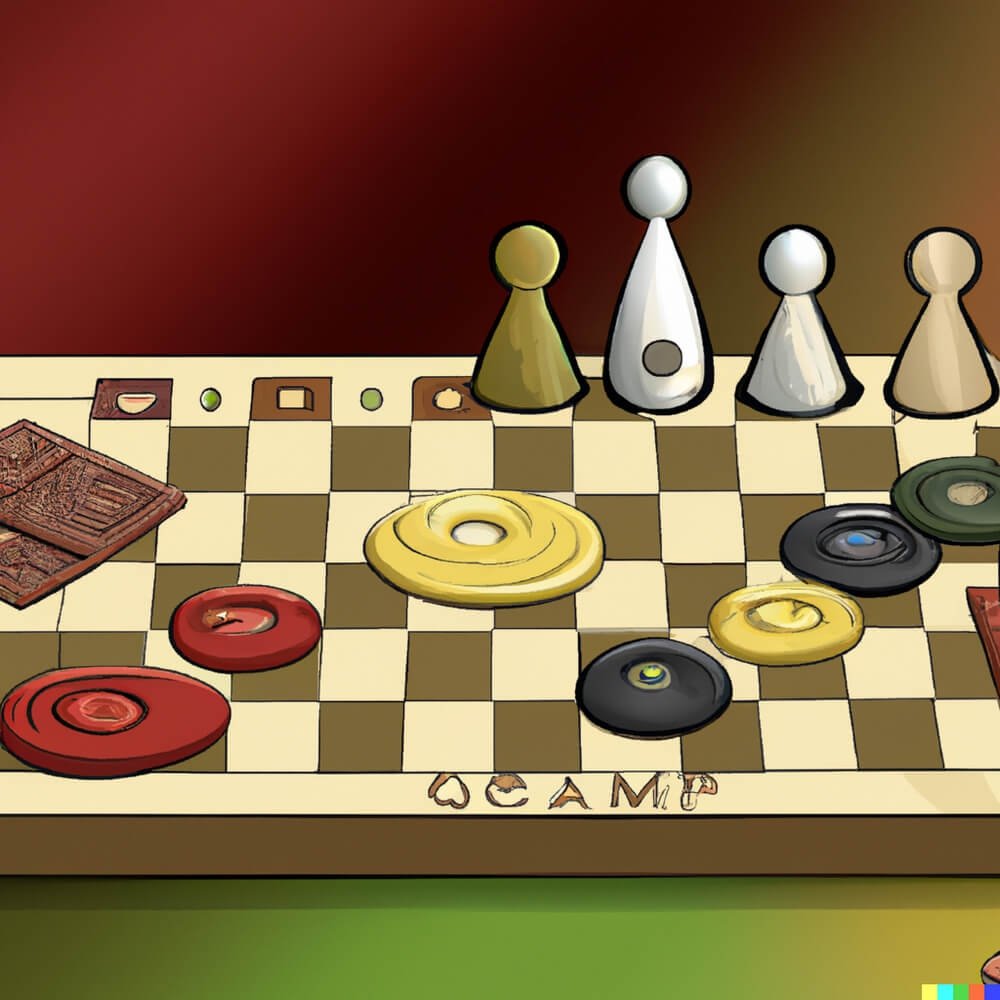Looking for a fun and educational way to engage your toddler? Classic board games for toddlers are the perfect solution. These timeless games offer a variety of benefits for young children, from enhancing cognitive skills to promoting social interaction. In this article, we’ll explore why classic board games are so beneficial for toddlers and provide some tips for choosing the right games for your little one.
Playing classic board games can have a positive impact on a toddler’s development. Not only do these games help improve important skills such as counting, color recognition, and hand-eye coordination, but they also teach valuable lessons in taking turns, following rules, and good sportsmanship. Additionally, playing with others can help toddlers build important social skills like sharing and cooperation.
In the following sections, we’ll delve into the specific benefits of playing classic board games for toddlers, as well as provide recommendations for the top 5 classic board games that are perfect for this age group. Whether you’re looking to introduce your toddler to their first game or find ways to adapt classic board games for special needs children, this article will guide you through the enjoyable world of classic board game play for toddlers.
Benefits of Playing Classic Board Games for Toddlers
Classic board games offer a wide variety of benefits for toddlers, making them an essential part of early childhood development. One of the key benefits is the improvement of cognitive skills such as memory, problem-solving, and decision-making. By engaging in gameplay, toddlers learn to strategize and plan their moves while also developing their critical thinking abilities.
Another notable benefit is the social interaction that classic board games promote among toddlers. These games provide an opportunity for children to learn important social skills such as taking turns, following rules, and good sportsmanship. Additionally, playing board games with family members or peers can foster bonding and create cherished memories for toddlers.
Furthermore, classic board games can aid in the development of fine motor skills in toddlers. Many traditional board games require physical actions such as picking up and moving game pieces, rolling dice, or using cards. These activities help young children improve their hand-eye coordination and dexterity.
| Benefit | Description |
|---|---|
| Cognitive Skills Development | Improvement in memory, problem-solving, and decision-making skills through gameplay. |
| Social Interaction | Opportunity for children to learn taking turns, following rules, good sportsmanship and creating bonding moments. |
| Fine Motor Skills Enhancement | Development of hand-eye coordination and dexterity through physical actions required in playing traditional board games. |
Top 5 Classic Board Games for Toddlers
When it comes to classic board games for toddlers, there are a few timeless options that are always a hit. These games not only provide entertainment, but also help in the development of important skills such as counting, color recognition, and turn-taking. Here are the top 5 classic board games that are perfect for toddlers:
1. Candy Land: This colorful and simple game is ideal for toddlers as young as two years old. It involves moving through a magical land of sweets and treats, while also teaching them about taking turns and following instructions.
2. Chutes and Ladders: Another classic game that is great for toddlers is Chutes and Ladders. This game helps in teaching children about numbers, counting, and simple strategy as they move their pieces up ladders or down chutes to reach the finish line.
3. Hi Ho. Cherry-O: This game is not only fun for toddlers, but it also helps them with basic math skills such as counting and addition. The goal of the game is to pick cherries from the tree and fill up your bucket before the others players.
4. Memory Match Game: A memory match game with large cards featuring colorful pictures is always a hit with toddlers. This game not only sharpens their memory skills but also teaches them about taking turns and patience.
5. Hungry Hungry Hippos: This energetic game is perfect for active toddlers who love to have fun. The objective of the game is to make your hippo “eat” as many marbles as possible by pressing its lever, promoting hand-eye coordination and fine motor skills.
These classic board games are not only entertaining but also educational, making them perfect choices for toddlers who are just starting to explore the world of board games.
How to Choose the Right Classic Board Game for Your Toddler
Choosing the right classic board game for your toddler can be a fun and rewarding experience. It’s important to consider their age, interests, and developmental stage when selecting a game. Here are some tips to help you choose the perfect classic board game for your little one:
- Consider your child’s age and developmental stage: Toddlers have different abilities and attention spans, so it’s important to choose a game that is age-appropriate and suitable for their level of development.
- Look for games that teach important skills: Classic board games for toddlers often focus on essential skills such as counting, color recognition, shape recognition, and fine motor skills. Choose a game that will help your toddler develop these important abilities while having fun.
- Take your child’s interests into account: Think about what types of themes or characters your toddler enjoys. Whether it’s animals, vehicles, or favorite cartoon characters, choosing a game with a theme that excites them can make the game even more engaging and enjoyable.
When choosing a classic board game for your toddler, it’s also essential to consider the size and durability of the game pieces. Toddlers are still developing their fine motor skills, so larger, easy-to-grasp pieces are ideal. Additionally, opting for games made of sturdy materials can help ensure they withstand the inevitable wear and tear of enthusiastic play.
As you explore different classic board games for toddlers, keep in mind that simplicity is key. Games with straightforward rules and gameplay will be easier for young children to understand and enjoy. By considering these factors, you can select a classic board game that will provide hours of entertainment while promoting valuable skills development for your toddler.
Tips for Introducing Classic Board Games to Toddlers
Introducing classic board games to toddlers can be a fun and rewarding experience for both parents and children. However, it’s important to approach this activity in a way that ensures the best possible outcome for everyone involved. Here are some tips for introducing classic board games to toddlers:
Start With Simple and Age-Appropriate Games
When introducing board games to toddlers, it’s important to start with simple and age-appropriate games. Look for games that involve basic concepts such as color recognition, matching, or simple counting. Games like Candy Land, Chutes and Ladders, or Memory Match are great options for young children.
Set Realistic Expectations
It’s essential to set realistic expectations when introducing board games to toddlers. Understand that young children may have shorter attention spans and may not fully grasp all the rules of the game right away. Be patient and allow them to explore the game at their own pace.
Make It Fun and Engaging
To ensure a positive experience, make the introduction of board games fun and engaging for your toddler. Use colorful game pieces, provide plenty of encouragement and praise, and most importantly, focus on having fun together rather than winning or losing.
By following these tips, you can help your toddler develop important skills such as turn-taking, decision-making, and problem-solving while also enjoying quality bonding time with your little one through classic board games.
Importance of Supervision and Engagement During Game Play
When it comes to toddlers playing classic board games, supervision and active engagement during game play are essential for a successful and enriching experience.
The Role of Supervision
Toddlers require constant supervision when playing board games to ensure their safety and to guide them through the rules of the game. As they are still developing their motor skills and cognitive abilities, they may need assistance in handling game pieces, understanding gameplay instructions, and staying focused throughout the game.
Additionally, supervision is crucial to prevent any potential choking hazards from small game components. It’s important for adults to carefully select age-appropriate board games with larger pieces to minimize such risks, but supervision remains critical.
Encouraging Engagement
Active engagement during game play is vital for toddlers to maximize the benefits of classic board games. Adults should actively participate in the game by explaining rules, patiently waiting for their turn, and providing positive reinforcement regardless of the outcome.
Moreover, engaging with toddlers during board game sessions promotes social interaction, teamwork, and bonding between adults and children. These interactions not only enhance the child’s learning experience but also create a nurturing environment for them to thrive in.
By prioritizing supervision and maintaining active engagement during classic board games, adults can ensure that toddlers have a safe, enjoyable and educational experience while developing essential skills.
Adapting Classic Board Games for Toddlers With Special Needs
When it comes to including children with special needs in classic board game play, it’s important to consider their unique abilities and challenges. Adapting classic board games can make the gaming experience more inclusive and enjoyable for toddlers with special needs. Here are some ways to adapt classic board games for toddlers with special needs:
- Use larger, easy-to-grasp game pieces to accommodate motor skill challenges.
- Choose board games that have tactile components or textures for children with sensory processing issues.
- Consider games that have simplified rules or can be modified to match the cognitive abilities of the child.
It’s also important to create a supportive and comfortable environment during game play. This may include providing extra time for the child to take their turn, using visual aids or verbal prompts as needed, and maintaining a calm and patient demeanor throughout the game. Additionally, involving the child’s caregivers or therapists in the game play process can provide valuable insights and support for adapting classic board games to meet the specific needs of the child.
Ultimately, adapting classic board games for toddlers with special needs allows them to experience the joy of playing alongside their peers while also promoting important skills such as social interaction, turn-taking, decision-making, and problem-solving. By making simple modifications and accommodations, children with special needs can fully participate in the timeless fun and learning opportunities that classic board games offer.
Conclusion
In conclusion, classic board games offer a plethora of benefits for toddlers, making them an invaluable tool for early childhood development. From promoting cognitive skills to fostering social interaction and teaching important life lessons such as patience and teamwork, these timeless games are a fun and educational way for toddlers to learn and grow. By introducing classic board games to toddlers, parents and caregivers can provide them with a well-rounded learning experience that extends beyond traditional teaching methods.
When selecting classic board games for toddlers, it is essential to consider the age-appropriateness of the game and the specific needs and interests of the child. By choosing games that are engaging and enjoyable, parents can ensure that their toddlers will have a positive experience while learning valuable skills. Furthermore, supervision and active engagement during game play are crucial for promoting a safe and positive gaming environment for toddlers.
In summary, classic board games hold an enduring appeal for toddlers due to their ability to combine fun with learning. By incorporating these games into a toddler’s routine, parents can provide them with an enriching experience that promotes cognitive, social, and emotional development. With proper guidance and thoughtful selection of games, classic board games can continue to be an invaluable tool in the holistic growth of toddlers for generations to come.
Frequently Asked Questions
Can a 3 Year Old Play Board Games?
Yes, a 3 year old can definitely play board games, but the type of game should be age-appropriate and simple to understand. Games that involve matching, sorting, or basic counting are great options for toddlers. It’s important to choose games with durable pieces and larger components to avoid any choking hazards.
What Are Some Good Games for 2 Year Olds?
There are several good games for 2 year olds that can help develop their cognitive and motor skills. Simple matching games, stacking blocks, shape sorters, and basic puzzles are all great options for this age group. These types of games can help toddlers improve their hand-eye coordination, problem-solving abilities, and fine motor skills.
What Are Old Fashioned Children’s Indoor Games?
Old fashioned children’s indoor games, such as musical chairs, duck duck goose, Simon says, and leapfrog are timeless classics that have been enjoyed by children for generations. These games not only provide entertainment but also encourage social interaction, physical activity and creativity in kids without the need for modern technology or screens.

I love playing all kinds of games – from classics like Monopoly to modern favourites like Ticket to Ride.
I created this blog as a way to share my love of board games with others, and provide information on the latest releases and news in the industry.





